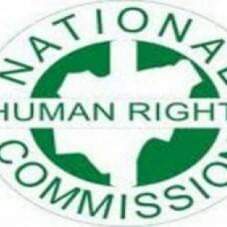The Executive Secretary National Human Rights Commission (NHRC), Tony Ojukwu Esq. has charged Ministries Departments and Agencies (MDAs) and Civil Society Organisations (CSOs) to programme their intervention activities towards addressing a clearly identifiable challenge on human rights as indicated in the National Action Plan (NAP) for the promotion and protection of human rights in Nigeria.
The NHRC Boss who stated this in Abuja at a “UN and Partners Dialogue on Human Rights Priorities in Nigeria”, observed that the idea of developing a national action plan for the promotion and protection of human rights is to have an integrated national strategy for engagements and interventions on the promotion and protection of human rights of everyone living in Nigeria. The Dialogue was organised by the United Nations Country Team in collaboration with the NHRC, Office of the United Nations High Commissioner for Human Rights and UN Women.
According to Ojukwu, having followed a laborious consultative process of UN periodic review of human rights which is aimed at establishing ownership by national actors, it is expected that all human rights actors will galvanise and gravitate their activities towards the realisation of the plan.
He opined that the justification for any application for funding should be that the intervention sought to be made is addressing a challenge identifiable in the NAP as this will help to address priority human rights concerns which will in turn impact positively on the human rights situation in the country.
He therefore noted that since the development partners hold the funds for human rights activities, they equally have a binding obligation to use their resources for the realisation of the Vienna Declaration and program of Action by ensuring that national action plans developed are adhered to by key actors in the country, “otherwise the same will remain a piece of document on the shelf of the Office of the High Commissioner for Human Rights in Geneva”.
The Executive Secretary disclosed that the Commission has developed a strategic work plan to effectively and successfully discharge its mandate for promotion and protection of human rights of Nigerians, which he said included the establishment of offices across all 36 states to increase access to Nigerians.
He commended the UN country team for their thoughtfulness and leadership on this dialogue even as he expects that going forward the UN country system can galvanise development partners, MDAs and CSOs IN Nigeria towards supporting the NAP for human rights document and make it the fulcrum for interventions on human rights promotion and protection in Nigeria.
In his welcome address, the UN Resident/Humanitarian Coordinator, Edward Kallon said that the dialogue is a consultation with stakeholders like CSOs and MDAs in Nigeria to reach a common understanding of human rights priorities in Nigeria with a view to charting the way forward towards addressing them.
The UN Envoy who was represented by Mr Peter Hawkins stated that the dialogue would enable the various stakeholders to brainstorm on the human rights issues in Nigeria and agree on common human rights priorities that should be addressed in line with UN expectations from Members states.
In her goodwill message, the Minister of Women Affairs, Dame Pauline Tallen observed that Nigeria like other African countries faces challenges in implementing International Treaties like CEDAW, CRC etc, however she expressed optimism that with the commitment of the federal government in making interventions to address the gaps, improvements are underway.
She stated that the Federal Ministry of Women Affairs was working with all stakeholders towards addressing the issue of gender inequality, which she noted requires improvement in access to education of women and girls, stopping gender discrimination and traditional harmful practices against women among other forms of inequalities.
The Minister also called for the domestication of Violence Against Persons Prohibition Act (VAPP) and Child’s Rights Act (CRA) in all the states of the federation, while ensuring that they are fully implemented up to the grassroots level to bring about all round improvement in the human rights situation of Nigeria.
Similarly, the Minister of Foreign Affairs, Geoffrey Onyema said that on the global level, the issue of racial discrimination, xenophobia, gender violence and other forms of discrimination are serious human rights violations that must be addressed whenever they rear their ugly heads.
The Minister who was represented at the occasion by Mr. Zaid Abdulsalam said that Nigeria is committed to promoting and protecting the rights of citizens and foreigners living in the country in line with its obligations to International Human Rights Principles like the ICCPR among others.
In her goodwill message, the Minister of Humanitarian Affairs, Disaster Management and Social Development, Hajiya Sadiya Umar Farouk disclosed that her Ministry has embarked on a lot of humanitarian projects like Npower, Conditional Cash Transfer and Home Grown School Feeding Programme to address social economic rights of citizens.
The Minister who was represented by Mr Musa Bungudu said that the Ministry contributed to the establishment of National Senior Citizens Centre and the National Disabilities Commission, all in a bid to improve on the human rights and humanitarian condition of these vulnerable categories of citizens.





